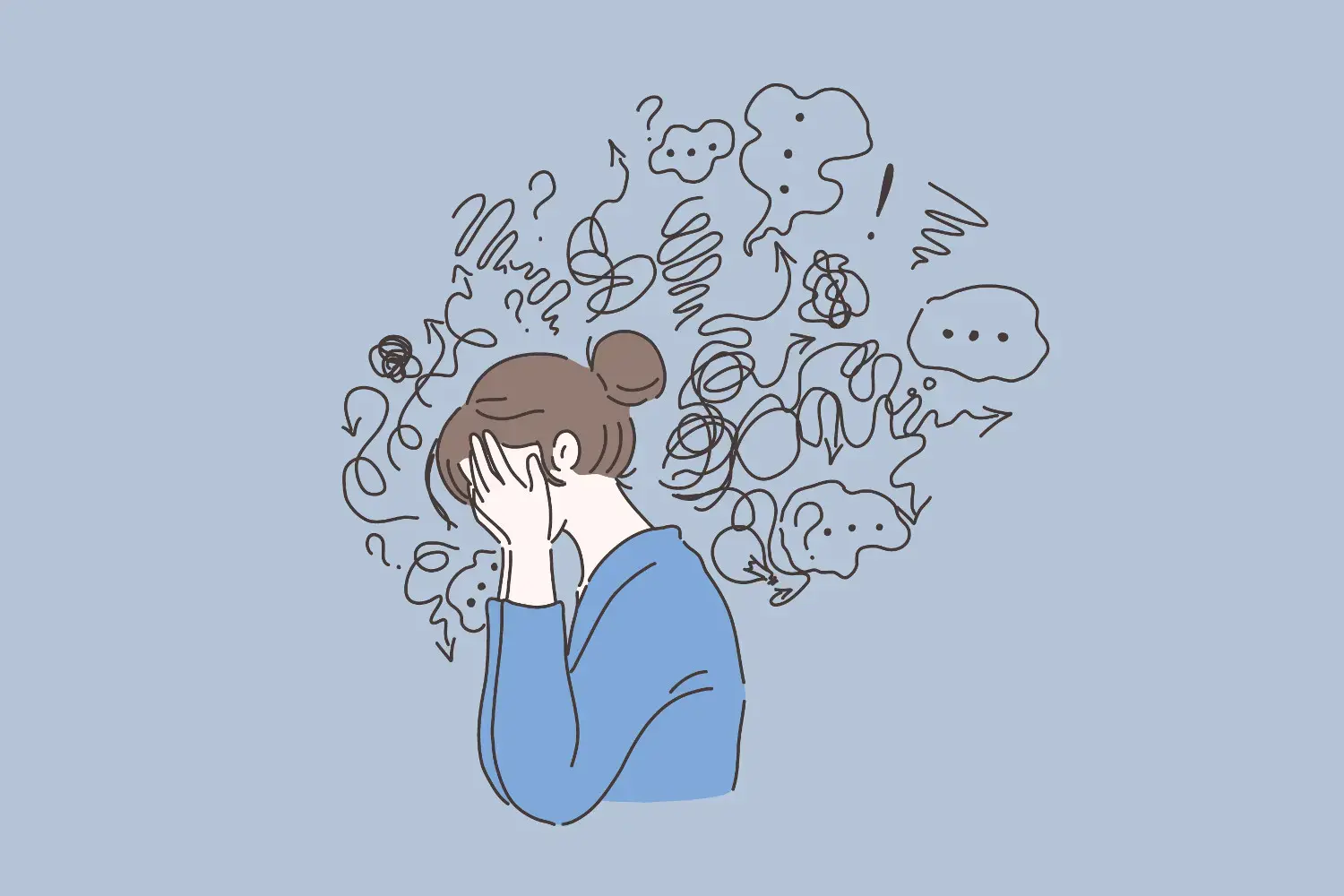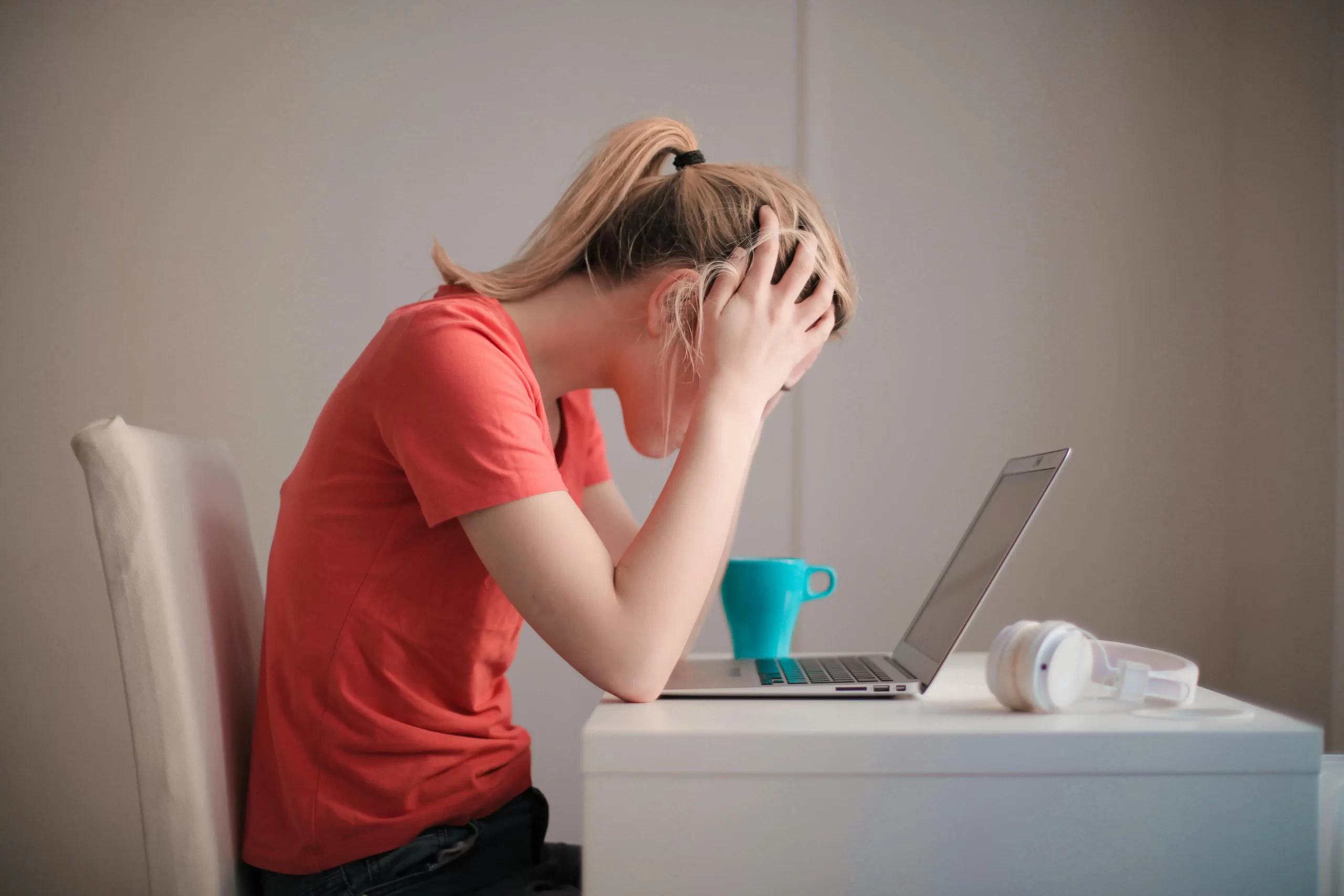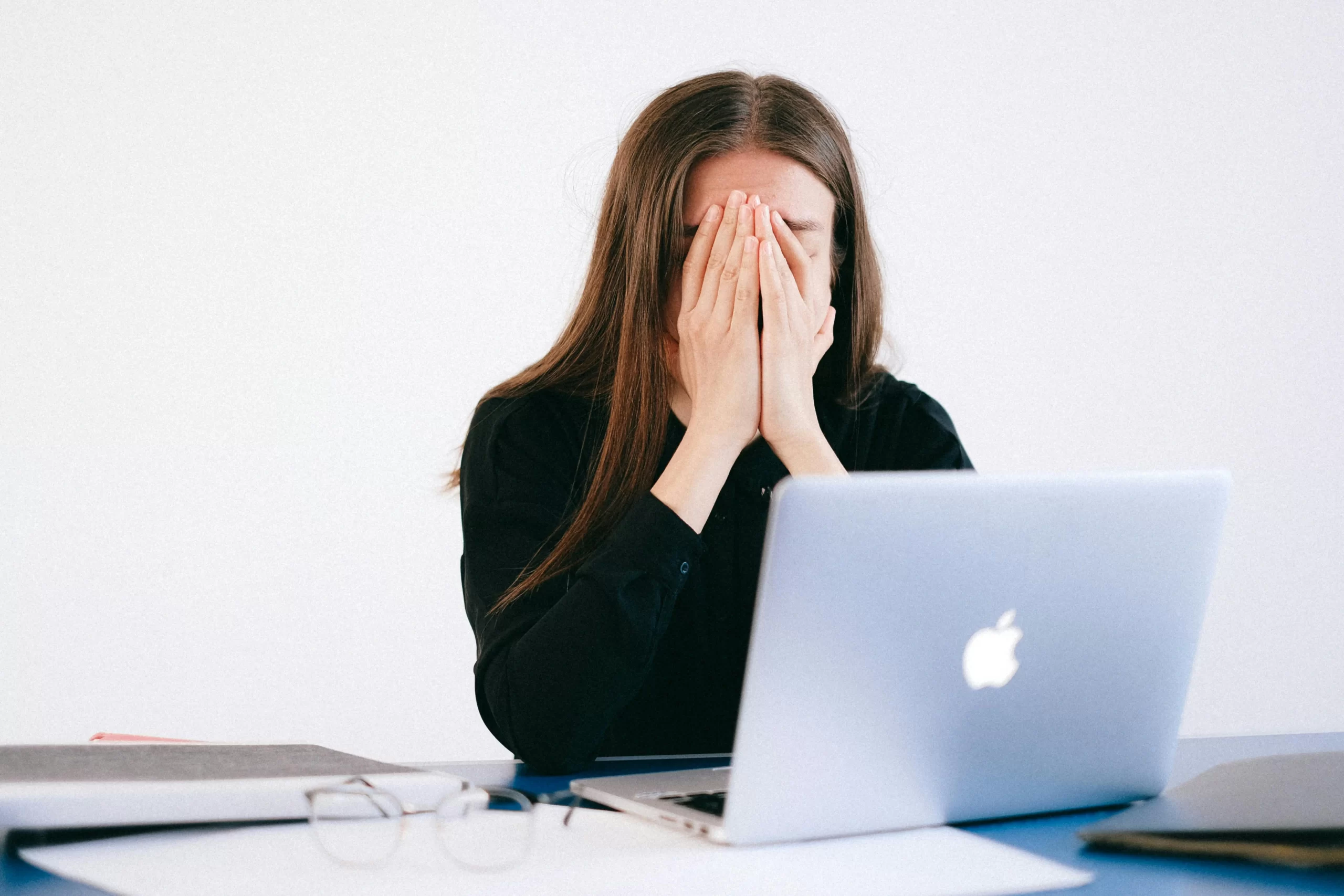How to Get Rid of Exam Anxiety: 5 Workable Solutions!
- Fashion Design
How to Get Rid of Exam Anxiety: 5 Workable Solutions!
Contact us
Bengaluru
Campus 1 : JD School of Design, No. 18-1, Brigade Road, Bengaluru,Karnataka – 560 001.
Campus 2 : No. 40, Swan House, 4th Cross, Residency Road, Bengaluru, Karnataka – 560001.
Goa
Musthtifund Saunstha , Near Mahalaxmi Temple,Dada Vaidya Road, Goa-403001
Anxiety during exam: Today’s fast-paced and ever-changing environment can exacerbate anxiety problems, yet anxiety is a normal human emotion that can affect many aspects of daily life, ranging from mild uneasiness to crippling fear.
Exam anxiety can seriously impede one’s ability to grow personally and maintain their wellbeing, whether they are dealing with new challenges, adjusting to unanticipated events, or confronting long-standing fears.
This essay will explain what anxiety is in detail as well as offer five tried-and-true strategies that have helped people overcome their phobias and anxiety.
 Fremantle Massage Therapy
Fremantle Massage Therapy
What is anxiety disorder?
Anxiety-related issues include tight or anxious thoughts, typical, everyday tension feelings, and physiological abnormalities like high blood pressure. It happens in reaction to something that might be a threat, which could be anything from a slight uneasiness to extreme terror. Anxiety is considered a universal human experience because it affects nearly everyone. But it becomes a clinical worry when it persists and makes it difficult to carry out regular activities. This extreme kind of anxiety is reflected in a number of anxiety disorders, such as panic disorder, social anxiety disorder, agoraphobia, generalised anxiety disorder (GAD), separation anxiety disorder, and selective mutism.

Everyday Health
Individuals may experience various symptoms and signs of anxiety issues.
Different people may experience anxiety problems in different ways. In the part that follows, we will talk about some common indications and manifestations of anxiety.
1. Physical Symptoms:
Anxiety attacks might present as headaches, lightheadedness, muscular cramps, and stomach problems. These sensations could be distressing and worsen an underlying medical condition, which would make it harder to go about everyday activities and maintain overall health.
2. Cognitive Effects:
Anxiety impairs cognitive function, making it harder for an individual to think clearly, recall details, or keep up a constant stream of thought. These cognitive deficiencies make it difficult to learn in the classroom and hinder successful socialisation at work, which leads to job discontent.
3. Emotional distress:
Anxiety disorders are characterised by severe emotional distress, which includes feelings of worry, fear, irritability, and impending doom. People may become overcome by these emotions to the point where they lose control over their feelings and social interactions.
4. Behavioural Changes:
Anxious people frequently alter their behaviour due to avoidance of situations that could trigger their fear response system or an excessive dependence on the assurance of others.
This behaviour shift makes it difficult for the person to carry out routine tasks like studying or working towards a goal, which makes them feel unwanted or abandoned.
5. Impact on Sleep:
Anxiety attack symptoms typically have a significant impact on sleep patterns for those who experience them. These include not being able to fall asleep, stay asleep, or have a restful night’s sleep.

Moreover, this may lead to further disruptions in the sleep cycle, which can deteriorate general mental and physical health by producing fatigue, irritability, and a reduced ability to think clearly. Although it should be noted that while occasional anxiety attacks are common, they may indicate an anxiety disorder if they worsen over time, interfere with day-to-day functioning, or cause significant distress.
It is critical that individuals seeking treatment for this illness seek out professional psychologists as soon as possible if they are displaying severe or ongoing symptoms.
Causes Of Anxiety Issues
It is difficult to pinpoint the exact causes of anxiety because there are many different variables at play, including genetic, environmental, psychological, and neurological ones. These are the top five factors that lead to the emergence of anxiety disorders:
1. Genetic Predisposition:
Anxiety disorder cases run in families may increase a person’s chance of developing related disorders, suggesting a genetic component. Certain gene variants may impact neurotransmitter activity and brain structure, making an individual more sensitive to anxiety.
2. Brain Chemistry and Function:
Disturbances in chemicals like serotonin, dopamine, or gamma-aminobutyric acid (GABA) can influence mood control and lead to anxiety disorders. Changes in certain brain pathways concerning the amygdala (associated with emotions) and prefrontal cortex (involved in controlling decisions as amygdala emotions) also seem to have an impact.
3. Trauma and Stressful Life Experiences: accidents,
Traumatic events such as physical or emotional abuse, neglect accidents, or significant changes in life can trigger or worsen social anxiety disorders. Chronic workplace stress, relationship problems, financial issues, or societal pressure can also contribute to the formation of anxiety symptoms.
4. Personality Factors:
Perfectionism, neuroticism, and excessive analysis are just a few examples of the personality traits that can increase one’s vulnerability to these illnesses. Furthermore, there is a greater chance of developing this illness in those who have low self-esteem, have had a traumatic experience in the past, or who handle stressful situations inappropriately.
5. Environmental Influences:
A person’s views, attitudes, and coping strategies regarding their experience with anxiety are influenced by a variety of contextual factors, such as family dynamics during upbringing, cultural influences, and socioeconomic status.
Early exposure to environmental stressors such as trauma, violence, or instability is linked to an increased chance of developing anxiety disorders in later life.
It’s critical to keep in mind that anxiety disorders are multifaceted illnesses caused by a range of biochemical, psychological, environmental, and genetic variables. Consulting mental health professionals provides individualised evaluation, therapy, and support to manage anxiety disorders.

5 Effective Strategies To Overcome Anxiety Issues And Fear Of Change
To overcome anxiety attack symptoms and the fear of change, one needs a combination of techniques that help manage feelings, rationalise negative thoughts, and eventually get used to new situations. These are five ways to reduce anxiety:
1. Meditation For Stress And Anxiety
For peacefulness in the body and mind, you can engage in meditation for stress and anxiety, deep breathing exercises, or progressive muscle relaxation. This kind of method will reduce physiological arousal connected with anxiety and prepare an individual for being in the moment, allowing one to stop worrying about what is going to happen in the future.
2. Cognitive-behavioural therapy (CBT):
To cope with change and uncertainty, it uses cognitive restructuring methods to challenge and replace the pessimistic cognitive distortions associated with them. For instance, try to identify irrational beliefs or catastrophic thinking patterns that you might have.
Then challenge them by using evidence-based reasoning so as to get rid of such unrealistic belief systems. Also, gradual exposure is applied during this therapy, as patients are made to face their fears slowly over time until they become desensitised.
3. Gradual Exposure and Desensitisation:
For a start, allow yourself to experience some changes that scare you. It is important, though, that you divide big goals into smaller, more manageable bites, thus increasing your exposure bit by bit. A person grows stronger at dealing with change when she confronts her phobias step by step.
4. Develop coping strategies:
Identify and develop coping strategies that work for you, like problem-solving skills or social support systems, as well as pleasurable activities or hobbies such as seeking out friends who can help address some problems arising from uncertainty in life transitions.
5. Focus on self-care:
Among other things, prioritise self-care activities such as regular exercise, sleep hygiene, healthy nutrition, etc
Engage in hobbies or activities that bring joy and fulfilment, thereby giving one a sense of control over one’s own life. Overall wellbeing can be enhanced, while vulnerability to anxiety can be reduced, if there is holistic self-care among individuals.
Remember that overcoming anxiety issues and the fear of change is a gradual process that requires patience, persistence, and self-compassion. Congratulate yourself when you achieve small victories and treat yourself with care during setbacks.
If anxiety persists or significantly interferes with daily functioning and the ways to reduce anxiety are not working, consider seeking support from a mental health professional for personalised guidance and treatment.

Finding Calm Amidst Chaos
It is a long journey to overcome anxiety issues and fear of change that calls for perseverance, self-insight, and experimenting with new techniques. By understanding the causes and symptoms of anxiety, it is possible to employ coping mechanisms that will help manage their symptoms as well as build resilience.
One could use mindfulness practices, cognitive restructuring, gradual exposure, developing coping skills, or prioritising self-care, among many other options.
Mind you, seeking professional support shows how strong one is; hence, by following the right path, he/she can overcome anxiety issues and accept changes in life with confidence and determination.
So surrender yourself to the process of growing because it’s about your progression that you must mark this year.
Frequently Asked Questions (FAQs)
- What are common symptoms of anxiety?
Common symptoms include physical manifestations like muscle tension and headaches, cognitive effects such as difficulty concentrating, emotional distress like fear and irritability, behavioural changes including avoidance, and sleep disturbances.
- How can genetics contribute to anxiety disorders?
Genetics may predispose individuals to anxiety disorders through inherited traits affecting neurotransmitter activity and brain structure, increasing their susceptibility to heightened anxiety responses.
- What role does mindfulness play in managing anxiety?
Mindfulness techniques like meditation and deep breathing calm the mind and body, reducing physiological arousal associated with anxiety and fostering present-moment awareness to alleviate worries about the future.
